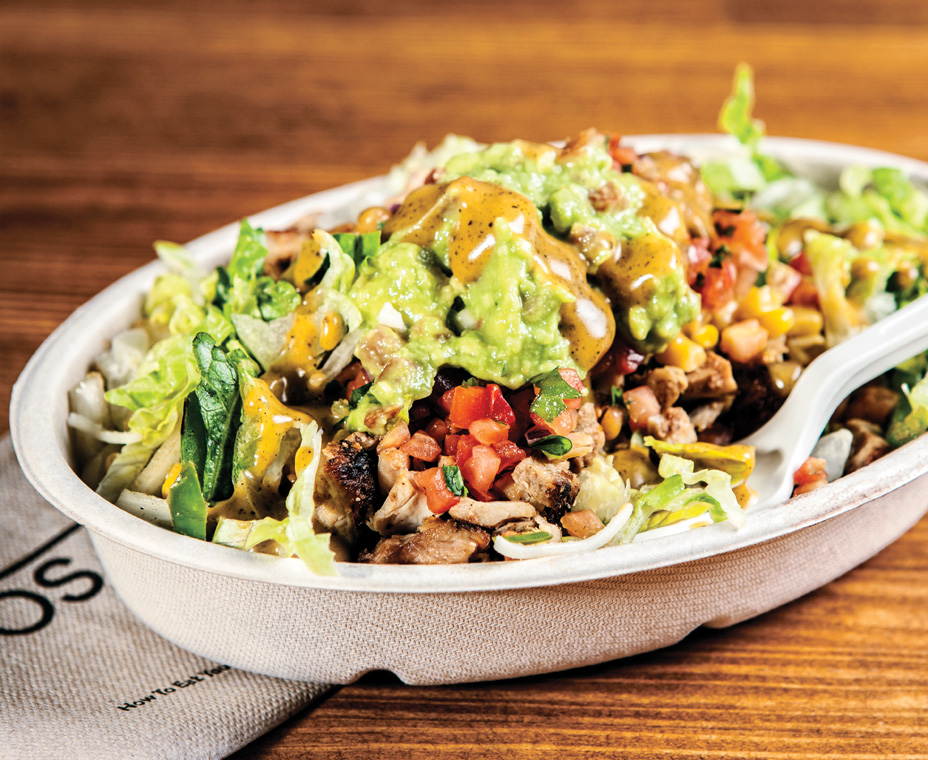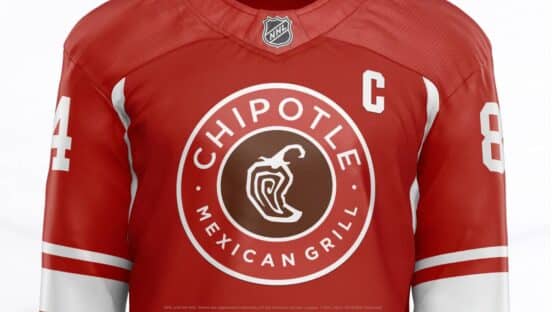For brothers Leo and Oliver Kremer, designing a taqueria inspired by their hometown was all about reverse engineering from a consumer perspective.
The Kremers, who grew up in Berkeley, California, say they had about six months of restaurant experience combined when they opened the first Dos Toros in New York City seven years ago. Still, they wanted to introduce the East Coast to Northern California–style burritos, tacos, and quesadillas.
“Burritos are the dominant fast-casual culture in California, especially Northern California, so everyone you know is eating multiple burritos per week,” Leo Kremer says. “You go to Chicago for deep-dish pizza; you go to the San Francisco Bay area for burritos. So we were pretty deeply steeped in that culture and got really passionate about the cuisine.”
Since the first location opened near New York’s Union Square, the brand has grown to 12 units and projected $30 million revenue in 2016. Two leases are already signed for 2017, including Dos Toros’ first Chicago restaurant. The brand recently secured a minority investment from GrowthPoint Partners—founded by Chopt CEO Nick Marsh, and with an investment from Mendocino Farms cofounders Mario del Pero and Ellen Chen—for its expansion into Chicago and other markets outside New York.
The brothers say that while many restaurants offer similar cuisine, they don’t believe competitors offer the same experience they’re crafting.
“Certainly Chipotle is enormous and super successful, and they’ve done a lot to just grow the category and grow awareness. But we didn’t set out to be that,” Leo Kremer says. “We set out to be a more updated and more organized version of our local taqueria that we went to in Berkeley. We felt that there was no one coming at it from that end: the depth of flavor and scratch cooking in an updated and modern environment.”
Inspired by the nearly-40-year-old California taqueria Gordo, Dos Toros offers burritos, platos (burrito bowls), salads, quesadillas, and tacos with a choice of pollo asado, carnitas, vegetables, or carne asada made from flap steak, which comes from a bottom sirloin butt cut of beef.
Menu change has been incremental; the brothers even debated for two years whether to offer lettuce to create the salads.
Dos Toros focuses on naturally raised and antibiotic-free meat, and gets its corn tortillas (made fresh each morning) from a Queens tortilleria that sources heirloom corn from Oaxaca, Mexico. For its Cali Quesadilla, the brand abandons typical melted triangles of tortilla and cheese and instead offers what the Kremers call a “grown-up” quesadilla: crisped to melt the cheese and then filled with meat, veggies, salsa, sour cream, and smoky verde sauce or habanero hot sauce.
Dos Toros Taqueria
FOUNDERS: Leo and Oliver Kremer
HQ: New York City
YEAR STARTED: 2009
ANNUAL SALES: Projected $30 million for 2016
TOTAL UNITS: 12
FRANCHISE UNITS: 0
In one new addition to the menu, Dos Toros introduced the nutty grain farro, which guests can add to burritos or use as a base for the platos as an alternative to rice.
“We kind of struggled with it because farro has got nothing to do with Mexican food. But the flavor was there, and that’s always first and foremost with us,” Oliver Kremer says.
The average guest check at the restaurant is $11, and customers can add guacamole to orders for $1.
The Kremers also put as much consideration into the design as they do into the food, using white tile, exposed brick, and reclaimed wood to create a “modern but cozy” atmosphere.
For Leo Kremer, a bassist who used to tour with the band Third Eye Blind, music is also an integral part to the restaurant atmosphere. Dos Toros creates music videos with employees—like “Black or Pinto” set to the tune of “Black and Yellow” by hip-hop artist Wiz Khalifa—that are posted to its website and various social media channels.
The brand’s mascot, Pinto the Burrito, boasts 72,000 followers on Instagram and a feed filled with Pinto’s travels around the world, as well as drop-ins on celebrity friends.
Marcus Byrd, marketing manager for Dos Toros, says the brand targets its content to specific social media platforms, whether it’s community outreach on Facebook or pushing in-store promotions through Snapchat. Although marketing efforts are considered “an exercise in playfulness,” Byrd says, they also showcase points of differentiation, like the brand’s scratch cooking.
Dos Toros employs about 400 people across its locations, and the Kremers say they work to promote from within and also outline a path for employee growth.
“We try to embody these core values of genuine warmth, total respect, and uncompromising expertise. And we also have some fun,” Leo Kremer says.










